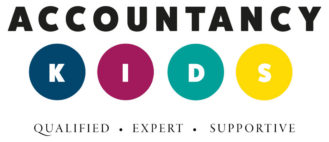Second grant for self employed
If your eligible to claim the second SEISS grant next week then here is a reminder how to claim and the records that you should keep.
To qualify for the second SEISS grant the business must be adversely affected by the coronavirus pandemic on or after 14 July 2020.
The Chancellor’s announcement on 29 May told us the SEISS would be extended, and now we know that businesses will able to claim a second sum of money from 17 August 2020. Once HMRC has checked the application the funds will be paid into the taxpayer’s bank account within six working days.
HMRC rules for the extended SEISS makes it clear that claims for the second grant must be submitted by 19 October 2020.
The amount of this second and final SEISS grant will be calculated at 70% of the taxpayer’s annual average profits, capped at £6,570 for three months. The other conditions to qualify for the second grant remain the same as for the first SEISS grant, applications for which closed on 13 July 2020.
Adversely affected
The main addition to the HMRC guidance for SEISS is further emphasis on the requirement for the business to have been “adversely affected” by the coronavirus pandemic as a pre-condition for claiming the grant.
To be considered adversely affected HMRC says a business must have temporarily stopped trading, the trading has been scaled back, or the business has incurred additional costs. HMRC suggests five possible causes behind the adverse affects on the trade as:
- supply chain has been interrupted
- fewer or no customers or clients
- staff were unable to work
- one or more of the business contracts has been cancelled
- the business has had to buy protective equipment in order to trade following social distancing rules.
The HMRC guidance was amended on 2 July 2020 to acknowledge that the trade could be adversely affected due to increased costs. For example, many businesses have had to undertake more cleaning, install screens and signage, and provide protective equipment to staff.
In addition, HMRC states that the business will have been adversely affected if the owner(s) can’t work because they are:
- shielding themselves or someone else in their household
- self-isolating
- on sick leave because of coronavirus; or
- have caring responsibilities because of coronavirus
In all cases, the taxpayer should keep records of how and why they believe their business has been adversely affected, and for which periods.
Continue to work
HMRC emphases that the self-employed taxpayer can continue to work in their business while receiving the SEISS grant.
Period of time and reduced trading
HMRC provides no guidance on how long the period of non-trading has to last for, or by what percentage the normal level of trading business has to reduce by, for the business to qualify as adversely affected. One could argue that a cessation of trading for as little as a few days would be enough.
Accurate recording of the timing of trading conditions and costs for the business will be crucial, as the second SEISS grant can only be claimed if the business is adversely affected on or after 14 July 2020.
Taxable grant
The grants received will be included in your accounts as taxable income and assessed in your tax return 2020/21. Please keep a record of the calculations produced by HMRC and the amounts and dates that you received the two grants.
